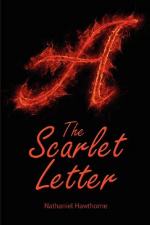Thus, there had come to the Reverend Mr. Dimmesdale—as to most men, in their various spheres, though seldom recognised until they see it far behind them—an epoch of life more brilliant and full of triumph than any previous one, or than any which could hereafter be. He stood, at this moment, on the very proudest eminence of superiority, to which the gifts or intellect, rich lore, prevailing eloquence, and a reputation of whitest sanctity, could exalt a clergyman in New England’s earliest days, when the professional character was of itself a lofty pedestal. Such was the position which the minister occupied, as he bowed his head forward on the cushions of the pulpit at the close of his Election Sermon. Meanwhile Hester Prynne was standing beside the scaffold of the pillory, with the scarlet letter still burning on her breast!
Now was heard again the clamour of the music, and the measured tramp of the military escort issuing from the church door. The procession was to be marshalled thence to the town hall, where a solemn banquet would complete the ceremonies of the day.
Once more, therefore, the train of venerable and majestic fathers were seen moving through a broad pathway of the people, who drew back reverently, on either side, as the Governor and magistrates, the old and wise men, the holy ministers, and all that were eminent and renowned, advanced into the midst of them. When they were fairly in the marketplace, their presence was greeted by a shout. This—though doubtless it might acquire additional force and volume from the child-like loyalty which the age awarded to its rulers—was felt to be an irrepressible outburst of enthusiasm kindled in the auditors by that high strain of eloquence which was yet reverberating




